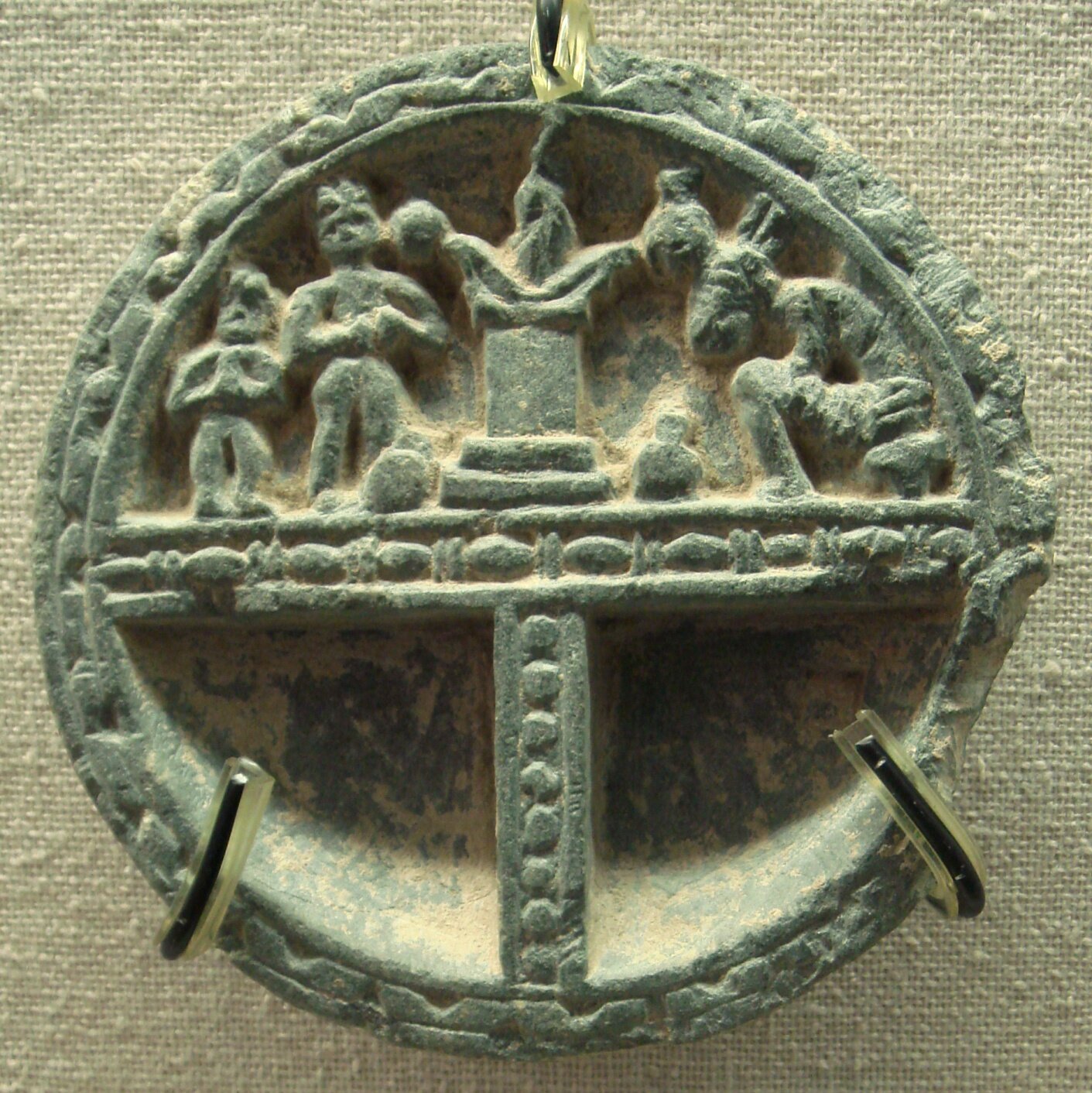Acculturation

One of the staples of fantasy, be it medieval or modern, is that for any given phenomenon or entity, no matter how inexplicable, ridiculous, depraved, or malevolent it is, someone, somewhere, will choose to worship it.
Cults are a big part of fantasy literature. Writers such as Lovecraft and Howard made ample use of cults as driving forces behind their stories, and the men and women who write modern role-playing game supplements have taken that tradition and run with it enthusiastically. It can actually be a little bit hard to decide what constitutes a cult, though, and as with many things in life, respectability and sanity can be a matter of perspective. According to Webster's dictionary, the most commonly-used definition of the word indicates "a small religious group that is not part of a larger and more accepted religion and that has beliefs regarded by many people as extreme or dangerous," but the word can also simply be used to mean any religion at all. Today, the main definition above usually refers to small and socially-non-conformist groups under a single charismatic leader, but it's easy to forget that at various times in history, Christianity and Judaism were arguably cults. Just as George Bernard Shaw observed that all great truths begin as blasphemies, so too does one generation's cult potentially become the next generation's dogma.
In fantasy, though, cults aren't usually warm, friendly environments filled with men and women who give generously to charity and love their neighbours. Rather, the cults in our novels and, importantly, our games, tend to be the sort with lots of hooded robes, curvy daggers, unpronounceable-named deities, and the sacrifice of unwilling sentients. As easy as it may be to imagine joining a nice, wholesome religion, why is it that so many people, both fictional and real, get drawn in to the worship of Cthulhu or, less absurdly but perhaps even more frighteningly, the Thuggee or David Koresh?
A number of writers have tried to explain the psychological factors behind why someone might get drawn into a cult, and no one has come up with a really good answer to the question. There are some theoretical models, of course, but since we can hardly conduct a controlled experiment to test them, nor can we ever be absolutely certain what was going on in someone's mind, theories are the best we have. Psychologist Philip Zimbardo famously observed that no one ever actually joins a cult, by which he meant that people recruited into cults do so because they believe they're joining a legitimate group that can offer them some benefit, and not because they have an explicit desire to be subsumed. Our best understanding is that people join cults in a search for personal meaning, or spiritual fulfillment, or a way to change society around them. Motivations such as these can certainly be seen in the writings of Lovecraft, for example, where people often come under the sway of cults because they're seeking a truth not found in the more acceptable religions.
The more insidious part tends to be, not how people are recruited into the cult, but how they're kept there. Here we see some of the most well-established tricks in the literature on mind-control: applying a strong peer pressure to conform, reinforcing a sense of community, fostering a paranoid perception of the outside world and non-believers, all in the context of sleep deprivation to sap the will. Religious cults also tend to have hour after hour of repetitive prayer and ceremony, which seems to play a role in breaking down an individual's defenses. These techniques are thought to temporarily weaken an individual's ability to think critically (we all know how much harder it is to make rational decisions when you're short of sleep or when people you like are steering you in a certain direction), and some psychologists hypothesize that they also weaken "ego function," meaning an individual's certainty in their sense of self and the wisdom of their beliefs and value judgments. In this theoretical model, the cult recruit is induced to "regress," returning to a less mature form of decision making, becoming more emotionally dependent and more desperate for attachment figures. An example of this is that the cult recruit is encouraged to use what might be called a more "primitive" defense mechanism. Instead of being able to cope with adversity by finding the humour in a situation or finding a way to grow with the adversity, the individual might begin splitting, seeing the cult around them as being "all good" and without fault and seeing everything outside the cult as "all bad" and irredeemable, even in the face of evidence otherwise. The cultist presumably then feels pressured to become ever deeper in the "good" cult, since this means that the cultist is good as well.
A number of studies have suggested that no particular personality type or profile seems to place one at a higher risk for being recruited into a cult. The explanation for this is that the successful cults tend to be led by very charismatic individuals who, like any skilled salesperson, are able to tailor their sales pitch to fit the "customer." Individuals who get drawn into cults are not, on average, any stupider, more gullible, more lonely, or more weak than their neighbours; rather, in gaming terms, they simply failed the wrong Sense Motive checks.
More than four years ago, Dr. Eris Lis, M.D., began writing a series of brilliant and informative posts on RPGs through the eyes of a medical professional, and this is the one that appeared here on September 22, 2013. Lis is a physician, gamer, and author of the Skirmisher Publishing LLC OGL sourcebook Insults & Injuries, which is also available for the Pathfinder RPG system.






